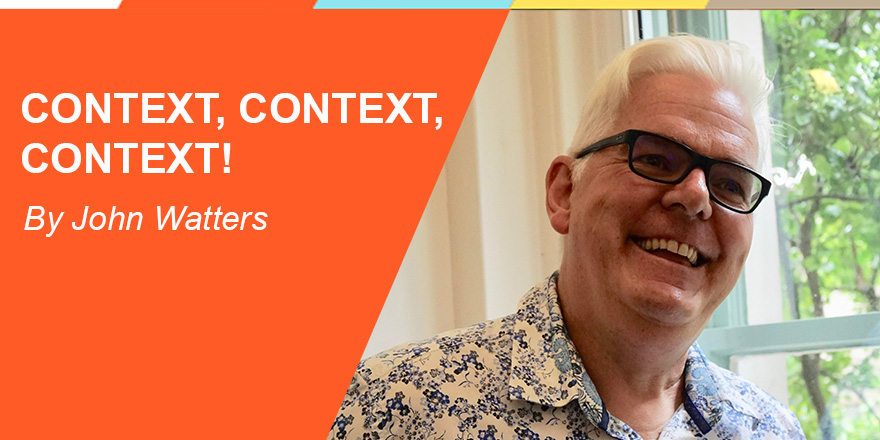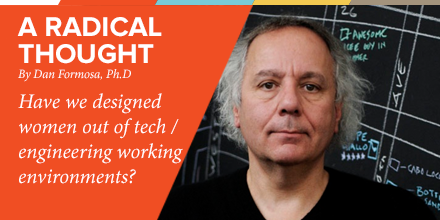

A 2013 study by researchers at Ohio State University confirmed something we probably already knew – the Matilda Effect is still with us. The term was coined in a 1993 paper by Margaret W. Rossiter, a science historian at Cornell University in upstate New York. She was describing the tendency for women’s roles in science to be downplayed – sometimes even ignored – with credit unfairly being given to only the males on the research teams. It’s been a long and on-going tradition, continuing though 1993, and remains in effect today (even Joanne Rowling changed her pen name in order to attract young boys to read Harry Potter).
The term is a play on the Matthew Effect, in which well-known scientists receive more credit than unknown scientists – a scientists’ version of “the rich get richer, the poor get poorer.” Rossiter named the Matilda Effect, the gender-based variation, in honor of activist Matilda Gage. In 1852 in Syracuse New York Gage began her career as an outspoken radical at a campaign rally for woman’s rights.
In the 2013 study 243 participants, males and females, were asked to read research papers in various fields, randomly attributed to male or female authors. The result: scientific papers, when attributed to male authors, were perceived to be higher quality. And that perception was held by both male and female readers.
I, Dan Formosa, am interested because in my field of design I see a related effect. Females are having trouble fitting in. In design and engineering schools the male/female ratio hovers around 50/50. In professional practice, it’s more like 85/15 – a drastic difference.
Females enter those fields but many eventually withdraw. Then we wonder why products and services tend to be so male biased. The entire category of consumer electronics serves as a prime example – few females feel manufacturers have them in mind. Automobiles represent another category. Or, ever see power tools appropriately designed for females? Because they use them a lot. Surgical tools, same issue. These products are designed mostly by males and, deliberately or not, designed for males. Meanwhile a significant opportunity for many companies: more effectively capture the attention of females, who make or influence approximately 85% of consumer purchases.
How can we even-up the ratio in the design and engineering fields? It will help to consider that these fields were historically populated by males, a situation dating back many decades. The cultures we’ve developed within these fields, the way we design and engineer products, evolved from the way males would design and engineer products. In these work environments, based on observations and personal discussions I’ve had with women in both fields, females react by either acting like one of the boys, or by sitting back. The Matilda Effect, or this variation of it, places females in the back seat.
The way we work in design and engineering is, in itself, a design. The cultures and environments we’ve created, the processes we’ve developed to get from point A to point B, the way we work together (or not), the ways we conduct ourselves in meetings, presentations, and otherwise interact, are based on the way males would do it. This gender problem is so large that we fail to see it.
What if we take the approach that the way we work is not inherent to those fields? It’s simply one form of engineering and design.
What if we look inward, and re-engineer and re-design those fields themselves, to make them more inclusive.
Radical? Like Matilda.
==
Our guest author Dan Formosa, Ph.D., is a consultant in design and design research and has based his career on the idea that design should focus on people, not things. Some examples of his impact on the world:
He has written for Forbes, FastCompany and ZDNet and is a member of the 4b Collective, the only design collective focused on satisfying womenı (all 4 billion of them).
Future Considerations Ltd
29 Adonis Street, Acropolis
Subdivision, Libis,
Quezon City,
Philippines 1110
Jon’s early career designing applications led to him becoming IT director for a market-leading multinational. His systemic perspective, allied with a background in psychology and subsequent leadership experience inside major organisations was followed by intensive learning in personal development, values systems and multiple intelligences. Brought together, these create a transformational perspective for understanding and developing organisations as living systems. Jon is a master trainer in Spiral Dynamics, a founder director of the UK chapter of Conscious Capitalism and a certified Spiritual Intelligence coach. He is the author of several books and articles and is developer of Relational Being, a visionary whole systems approach to evidence-based spirituality, complexity science, human emergence, societal change and conscious business. This breadth of experience and deep understanding informs his work as a consultant, coach, trainer and facilitator.